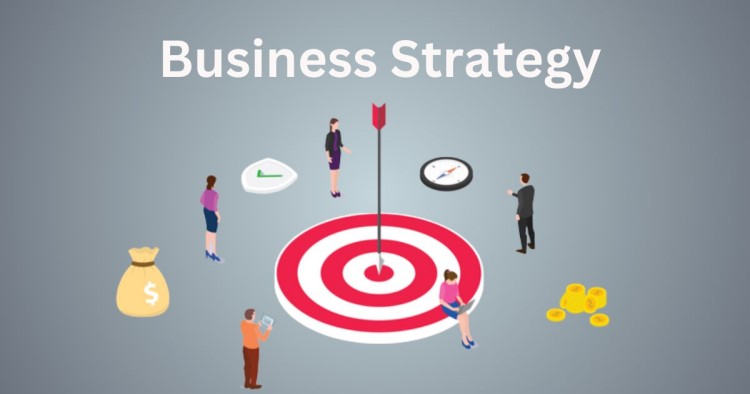 The fundamentals of business strategy are crucial for ensuring success over time. By using Key Performance Indicators (KPIs), companies can monitor how effectively their strategies are achieving their goals. KPIs provide clear, measurable insights that help businesses stay on course or make necessary adjustments. In today’s dynamic business environment, the ability to adapt strategies in response to market shifts, competitive pressures, and changing customer needs is more important than ever.
The fundamentals of business strategy are crucial for ensuring success over time. By using Key Performance Indicators (KPIs), companies can monitor how effectively their strategies are achieving their goals. KPIs provide clear, measurable insights that help businesses stay on course or make necessary adjustments. In today’s dynamic business environment, the ability to adapt strategies in response to market shifts, competitive pressures, and changing customer needs is more important than ever.
The fundamentals of business strategy emphasize not only the importance of setting a clear direction but also the need for ongoing evaluation. By regularly reviewing performance metrics and staying agile, companies can respond to challenges and opportunities with precision. This approach allows organizations to maintain a competitive edge and ensures long-term success in an ever-evolving market.
Defining Business Strategy: What It Is and Why It Matters
Business strategy is the framework that guides an organization in achieving its long-term goals. It outlines how a company plans to compete in its industry, satisfy customer needs, and grow sustainably. Essentially, it provides a clear direction for decision-making across the organization. A well-defined strategy aligns all departments, ensuring that every action taken contributes toward the company’s objectives. Without a solid business strategy, businesses can become directionless, making decisions that may conflict with one another and hinder overall growth.
At its core, business strategy encompasses several key elements, including the company’s vision, mission, and value propositions. It identifies a company’s competitive advantage—what sets it apart from competitors—and lays out the path for leveraging that advantage in the marketplace. Whether the focus is on cost leadership, innovation, or customer service, business strategy clarifies the specific approach a company will take to succeed. This strategic direction is essential, as it enables companies to respond effectively to market shifts, customer demands, and competitive pressures.
The fundamentals of business strategy go beyond just outlining goals; they serve as a blueprint for sustainable success. By implementing a robust strategy, companies can create a long-term roadmap that ensures consistent progress toward achieving their objectives. Moreover, business strategy is crucial in aligning both resources and personnel toward a shared vision, which fosters cohesion and focus. In a rapidly changing business environment, companies with clear strategies are better positioned to adapt, innovate, and thrive. As markets evolve, having a strategic foundation helps businesses make informed decisions and maintain a competitive edge over time.
Key Components of an Effective Business Strategy
An effective business strategy is built on several core components that provide direction and purpose for the organization. One of the most fundamental elements is the company’s vision, which describes its long-term aspirations and the future it seeks to create. This vision acts as a guiding light, offering clarity on where the organization wants to go. Closely linked to the vision is the mission, which defines the company’s purpose and the specific actions it will take to achieve its goals. Together, the vision and mission provide a strategic foundation that drives decision-making across the organization.
In addition to a clear vision and mission, setting measurable objectives is a critical component of any successful business strategy. Objectives give the company specific, actionable targets to pursue, ensuring that every department and employee understands what they are working toward. These objectives should be both ambitious and realistic, aligning with the company’s resources and capabilities. By establishing clear objectives, businesses can track progress and adapt their strategies as necessary, staying agile in a dynamic market environment.
A strong value proposition is another essential element of an effective business strategy. The value proposition explains how a company’s products or services solve problems or meet customer needs better than the competition. This focus on delivering unique value is crucial for building and maintaining a competitive advantage. Ultimately, the fundamentals of business strategy revolve around these key components—vision, mission, objectives, and value propositions—which collectively empower organizations to differentiate themselves and achieve long-term success. When these components align with a company’s competitive advantage, it positions the business to not only compete but thrive in its industry.


